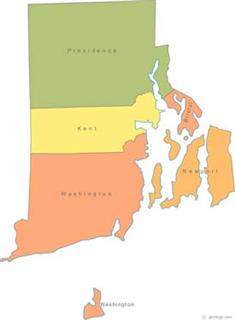is also available through the following offer:
Certified Alcohol Server Training Program by the Rhode Island Department of Behavioral Healthcare, Developmental Disabilities and Hospitals
Related Courses for Rhode Island:
What is the minimum age to sell/serve alcohol in Rhode Island?
The minimum age to sell and serve alcohol in Rhode Island is 18.

The Rhode Island Division of Commercial Licensing and Regulation Liquor Enforcement and Compliance
The agency that handles Rhode Island liquor licensing and/or bartender licensing rules and regulations in Rhode Island is The Rhode Island Division of Commercial Licensing and Regulation Liquor Enforcement and Compliance. The contact information for The Rhode Island Division of Commercial Licensing and Regulation Liquor Enforcement and Compliance is listed below. You can contact them to verify that online server certification (bartender license) can be obtained in Rhode Island. We have also listed that information where applicable.The Rhode Island Division of Commercial Licensing and Regulation Liquor Enforcement and Compliance
Telephone: (401) 462-9500
Website: http://www.dbr.state.ri.us/divisions/commlicensing/liquor.php
Bartending License, alcohol server training server permit regulations for sellers and servers in Rhode Island
- RI Dram Shop Laws: Yes
- RI Happy Hour Laws: Happy Hour Laws reference the prohibited practices that result in excessive consumption of alcoholic beverages by consumers. You may NOT: Serve or sell two or more drinks at a price less than the number of containers actually sold - "two for the price of one." Increase amount of alcohol without increasing the price. Serve more than one free drink a day to any identifiable segment of the population. Sell an undetermined quantity of alcohol for a fixed price- "all you can drink." Sell alcoholic beverages at a reduced price to consumers paying a fixed "buy-in" price. Sell alcoholic beverages at a price based on the amount consumed. Sell alcoholic beverages at a reduced price after 11PM. Sell or serve more than two drinks to a single customer at a time. Conduct or sponsor contests which are determined by the amount of alcohol consumed or if alcohol is given as a prize. Engage in practices that are reasonably calculated to induce consumers to drink to excess.

